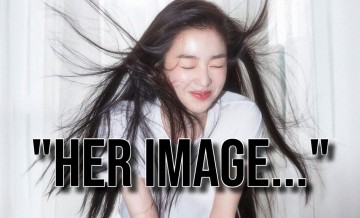Korean Classical Spotlight: Cellist-Composer Okkyung Lee's 'The Crow Flew After Yi Sang' Melds Melody With Beautiful Noise [AUDIO]
Since her first release in 2005, cellist and composer Okkyung Lee has quickly positioned herself as one of the premier Korean purveyors of avant-garde classical music.
To the uninitiated listener, Okkyung's recordings may at first appear obtuse to the point of being unapproachable. They weave seamlessly between harsh sound and lithe sonority, between true noise and genuine music.
In her piece "The Crow Flew After Yi Sang," Okkyung deftly navigates the intersection between noise and melody in a way that is inviting rather than alienating, providing the listener is armed with open ears.
"The Crow Flew After Yi Sang" is the leadoff track on the cellist-composer's 2013 album "Ghil."
For this record, Okkyung traveled to Norway with producer Lasse Marhaug, who documented the cellist's performances on a portable cassette recorder in unique locations like an alleyway and an abandoned power plant.
While Okkyung throws some serious elbows as the album proceeds, "The Crow Flew After Yi Sang" serves as a diplomatic introduction to her particular approach to the cello.
Okkyung's work falls under the category of free improvisation, a style of music that developed out of free jazz in the late 1960s. Free improvisation abandoned almost all gestures towards popular form and structure, allowing sound and texture to claim the spotlight in a way that was previously unheard-of.
According to Okkyung, her approach to this sort of daring performance style was arrived at only after she'd mastered her instrument, studying at the Berklee School of Music as well as the New England Conservatory.
"About eleven years ago I realized that there was something beyond the boundaries of musical vocabulary that existed throughout my musical education," Okkyung once said. "It was something that I never learned, was never exposed to nor even considered as a part of music.
"However when I was accidentally pushed into using it, it had so much emotional resonance and honesty...it made me feel finally connected to music and my cello after more than twenty years of playing and composing."
Other the piece's six-and-a-half minutes, there is an insistent, unmetered sort of repetition to vacillate between pitched material, (sound that can be identified as a note in the Western musical scale) and textures such as scratching, rubbing or other sandpaper-rough noises.
Throughout the piece, Okkyung allows her cello and bow to orbit an interval between two adjacent notes, with ghostly overtones and harmonics projecting dreamy constellations.
Her first divergence from standard musical methods occurs around two minutes into "The Crow Flew After Yi Sang," and it's a wild one. The cellist flies into a, what exactly? A rage? A trance? The emotions are unclear but clearly present nonetheless.
By the third minute, Okkyung begins to lean back into the rhythmic sawing, adding pressure and force to her bowing to obliterate the possibility of the previous notes being recognized.
At this point, if a new listener was to join us in the piece's progress, they might ask, is that a recording of an ancient, creaking door? Is this the sound of an unreliable dingy knocking against a waterlogged dock?
To summon these everyday sounds as part of her musical vocabluarity is a demonstration of Okkyung's generosity as an artist. After all, if we as listeners can appreciate these mysterious sounds in musical terms, doesn't that render those everyday sounds that much more musical?
Okkyung clearly hears the music that hides within noise and cherishes her own ability to create it herself.
As "The Crow Flew After Yi Sang" comes to a close, the song's original notes have returned, juxtaposed in a gnarly harmony that swells and decays in eerie waves.
Through that lulling, rhythmic back-and-forth, Okkyung invests the composition with continuity. Though "The Crow Flew After Yi Sang" swings between beauty and horror, it always maintains a consistent pulse that provides the necessary cohesion, a human element that solidly grounds it in the realm of expression, rather than the abstract.
Check out Okkyung Lee's "The Crow Flies After Yi Sang" RIGHT HERE:
Jeff Tobias is a composer and writer currently living in Brooklyn, New York. Lately, he's been studying the music of Morton Feldman and trying to step up his tic-tac-toe game.
















